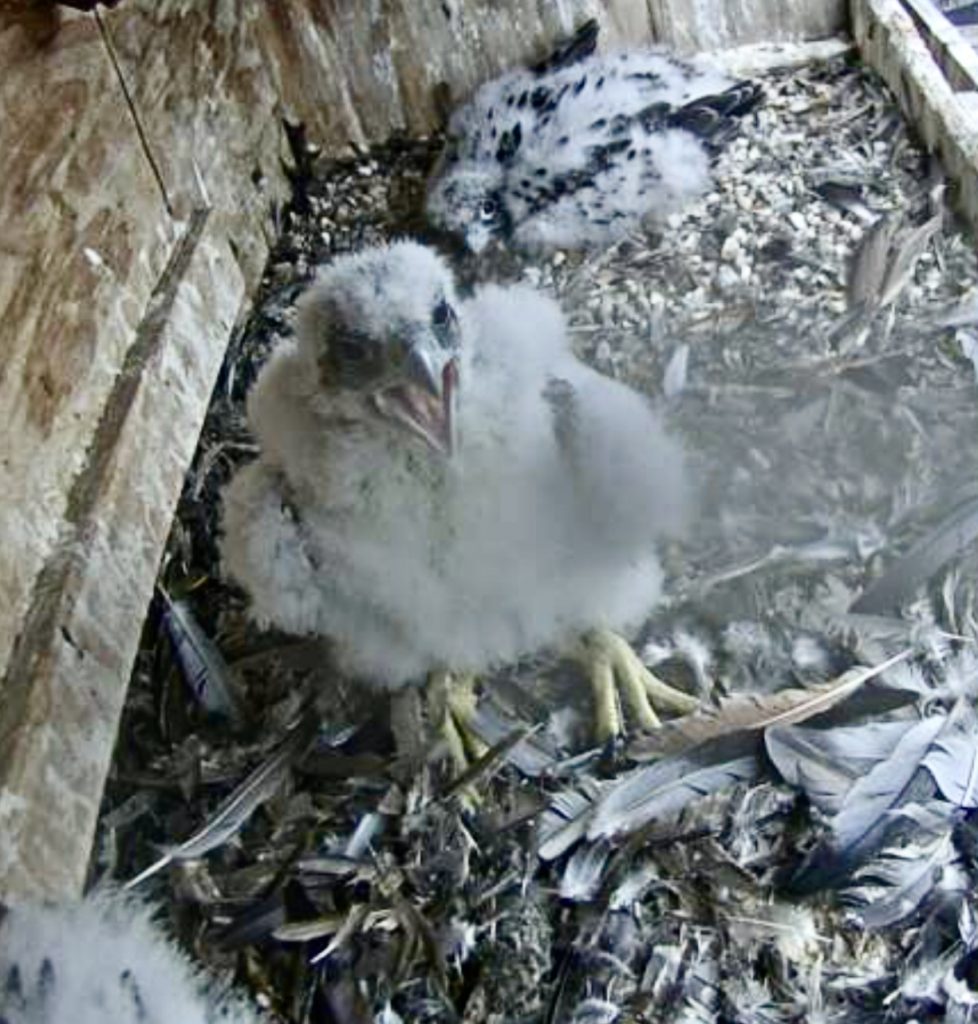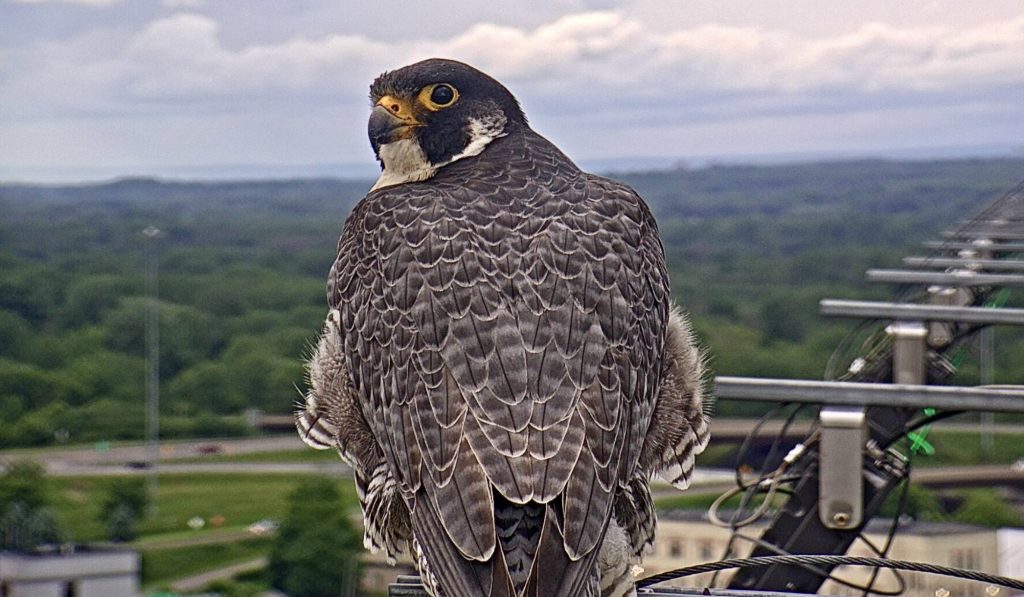Update for Tuesday, May 28, 2024
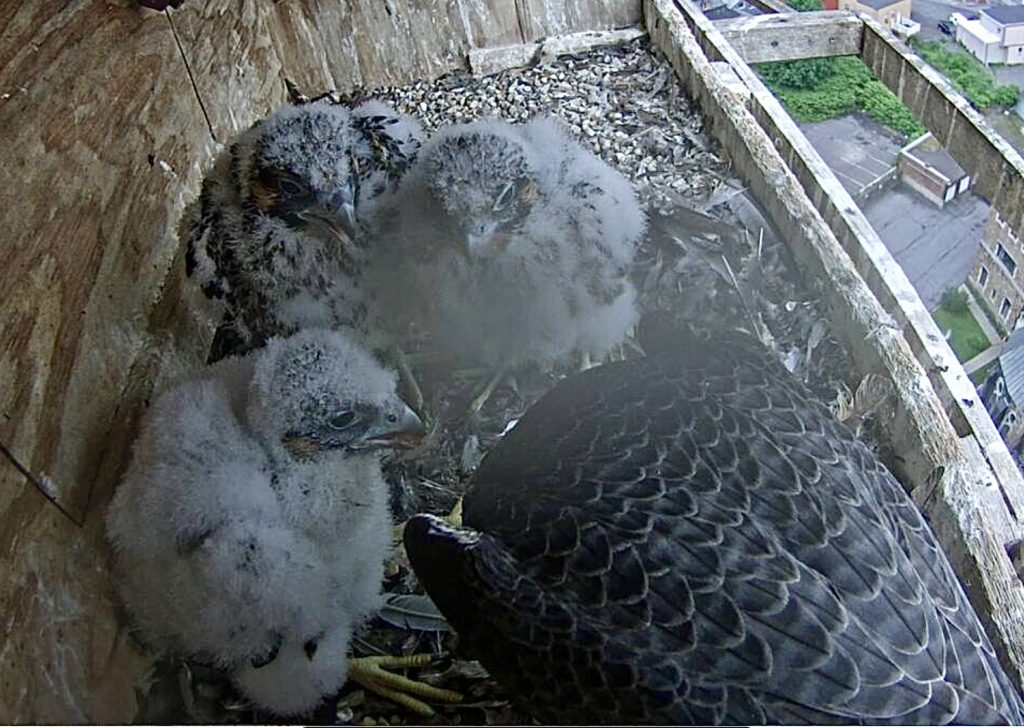
Peregrine Falcon nests can be very loud places especially when the young inside are over three weeks of age. Their squealing begging calls are ear piercing and it’s amazing that parent falcons can stand being in the nest with them. As it happens, nestling Peregrine Falcons exhibit a range of vocalizations that are crucial for their development and survival. Primarily, these sounds communicate their needs to parents and facilitate interactions with siblings. The most prominent vocalization is the begging call, a high-pitched, insistent “cheep”, “chip-chip”, or squeal that intensifies when a parent arrives with food. The frequency and intensity of these calls are directly related to the nestlings’ hunger levels, with louder and more persistent calls indicating a greater need for food.
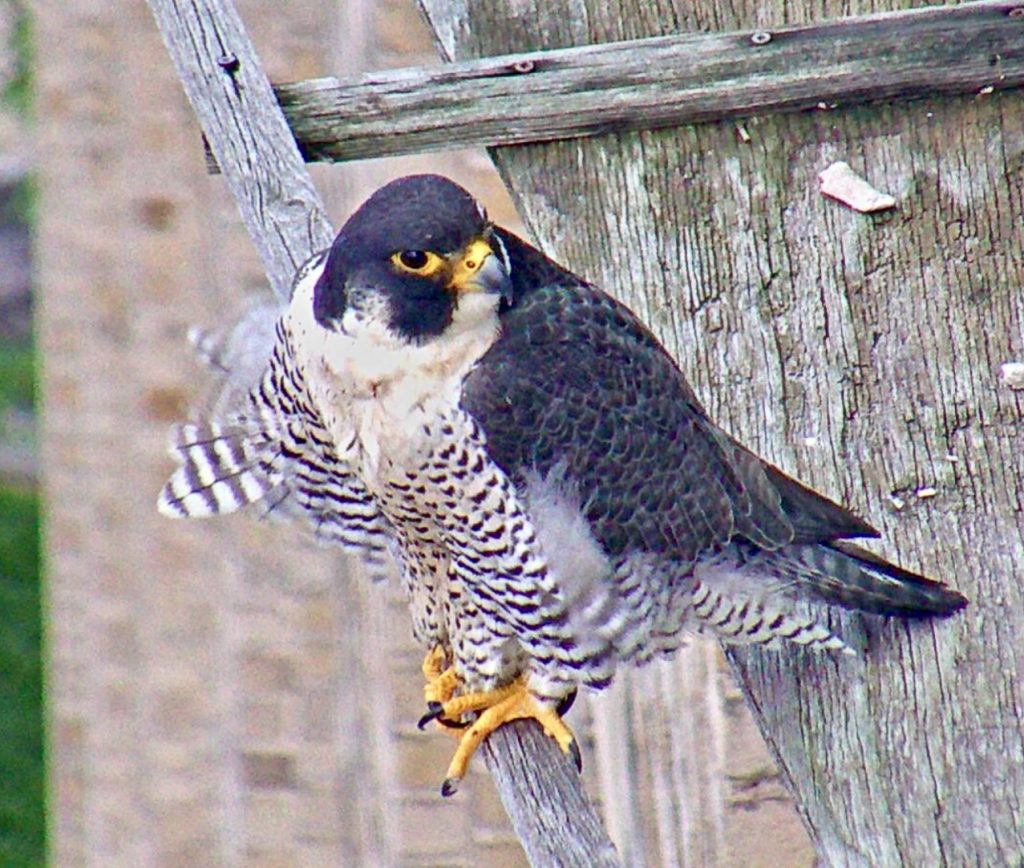
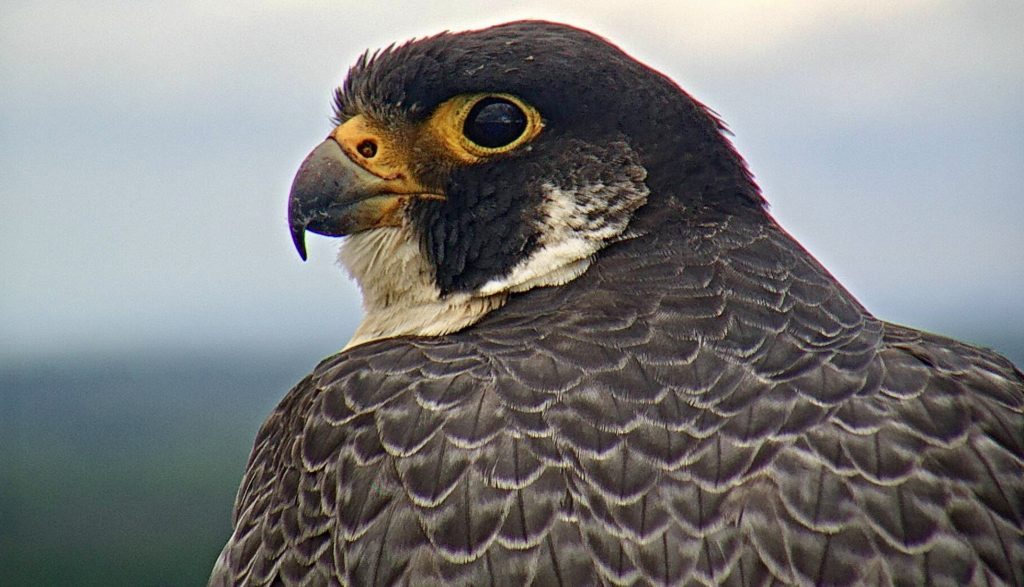
As they grow, nestling Peregrines produce a variety of other vocalizations, including softer, more conversational sounds used during interactions with siblings. These sounds help establish social bonds and hierarchies within the nest. Additionally, as nestlings practice flapping their wings and other pre-flight behaviors, their vocalizations can include excited chirps, squeals, and wails, signaling their readiness for the next stages of development. These varied vocalizations are essential for ensuring that their needs are met and for maintaining the social structure of the brood, ultimately preparing them for independence.
